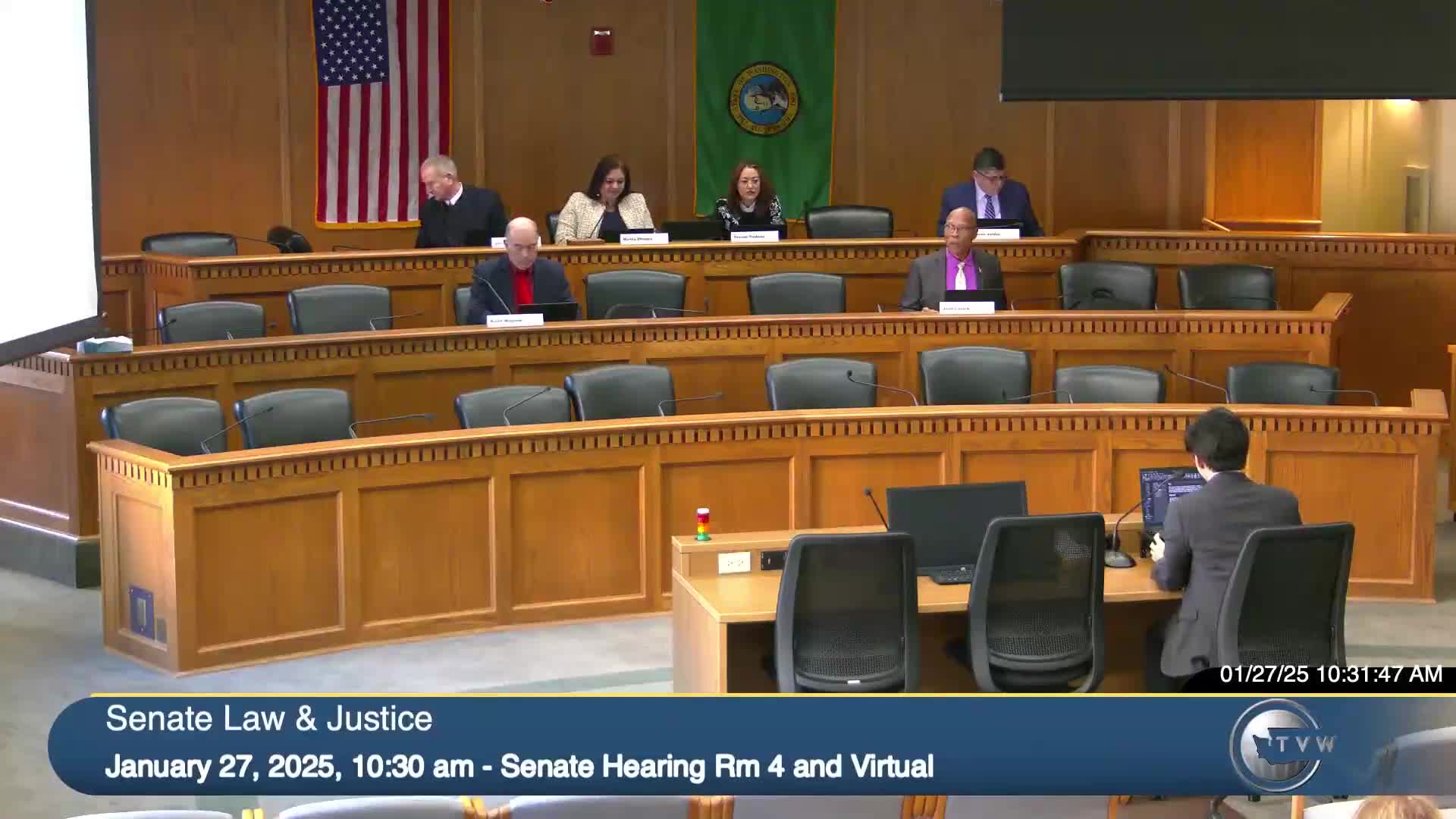Article not found
This article is no longer available. But don't worry—we've gathered other articles that discuss the same topic.
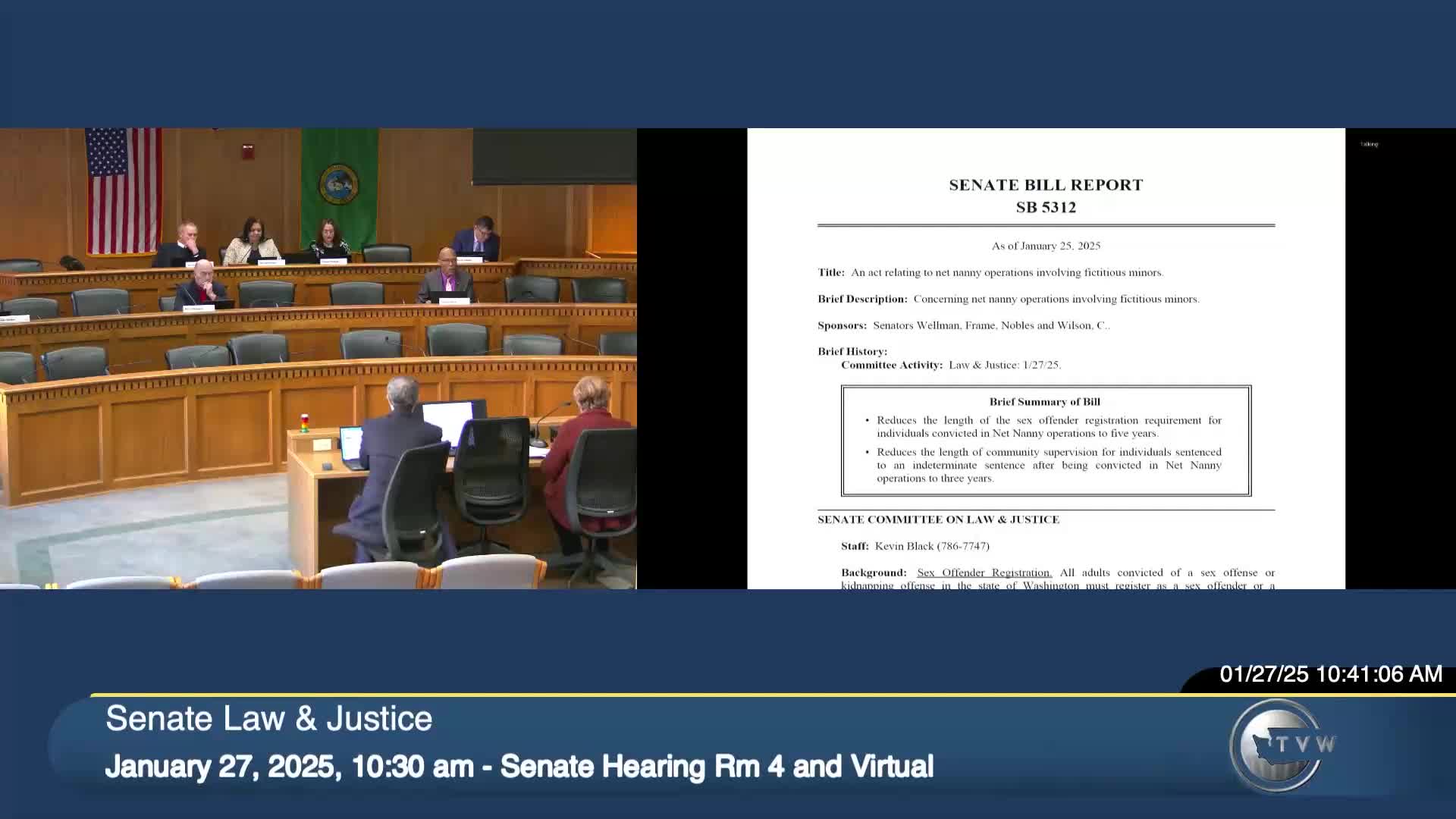
Lawmakers hear mixed testimony on bill to shorten registration and supervision for convictions from "net nanny" stings
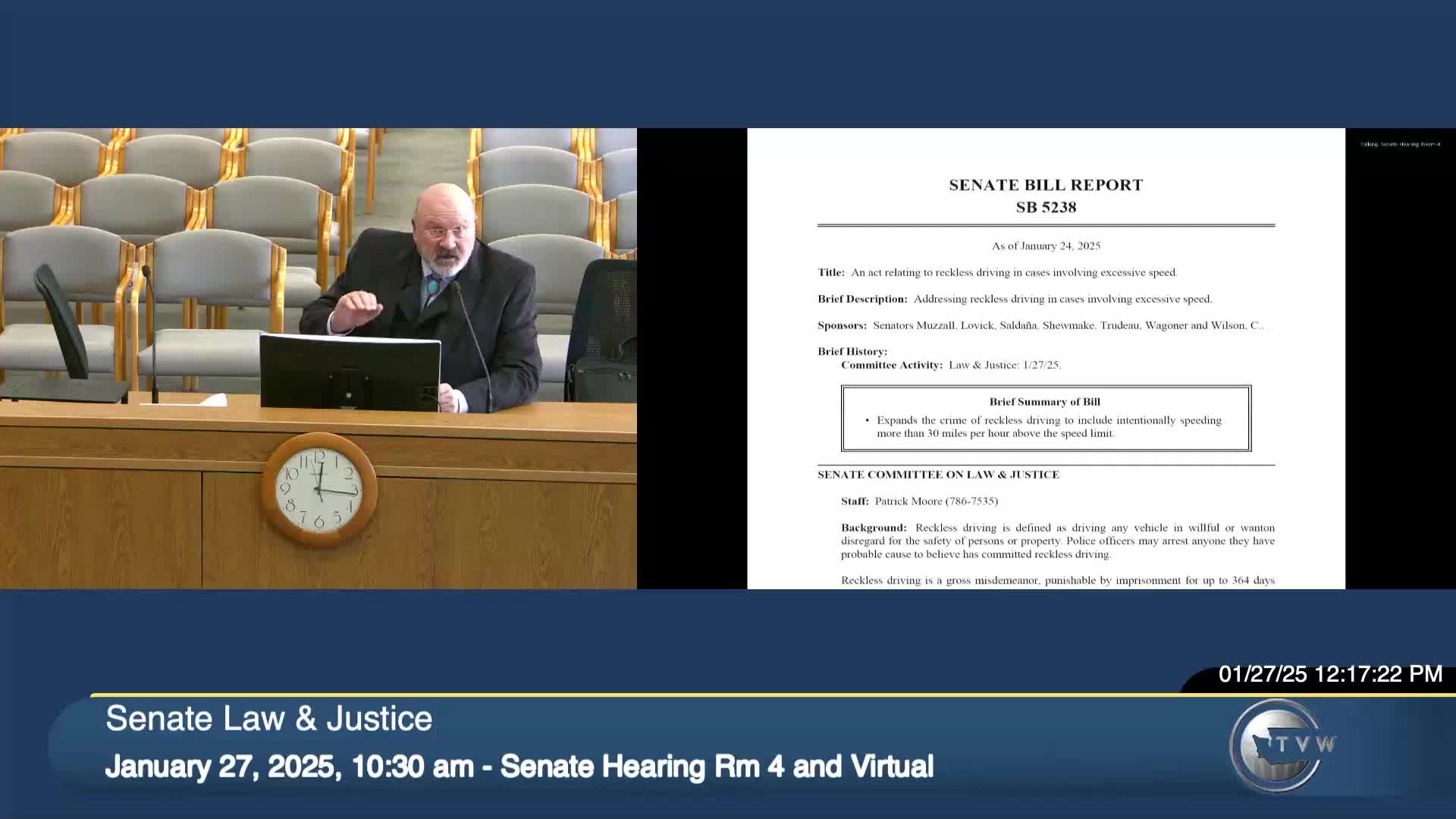
Senate bill would allow recent opioid overdose reversal to support involuntary-treatment evaluation; supporters cite lives saved, critics warn of unintended det
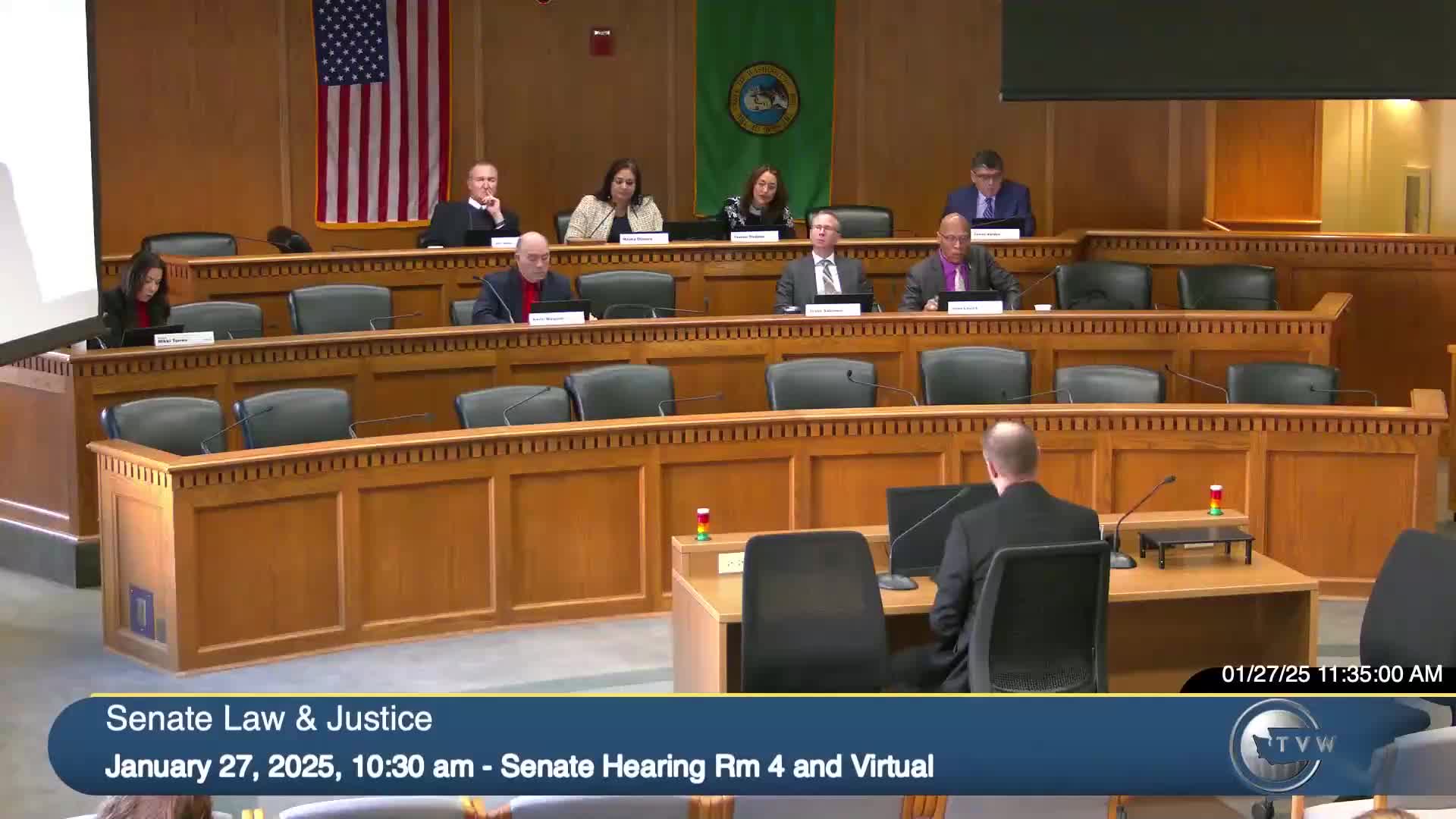
Bill would make driving 30+ mph over speed limit reckless; prosecutors suggest revisions
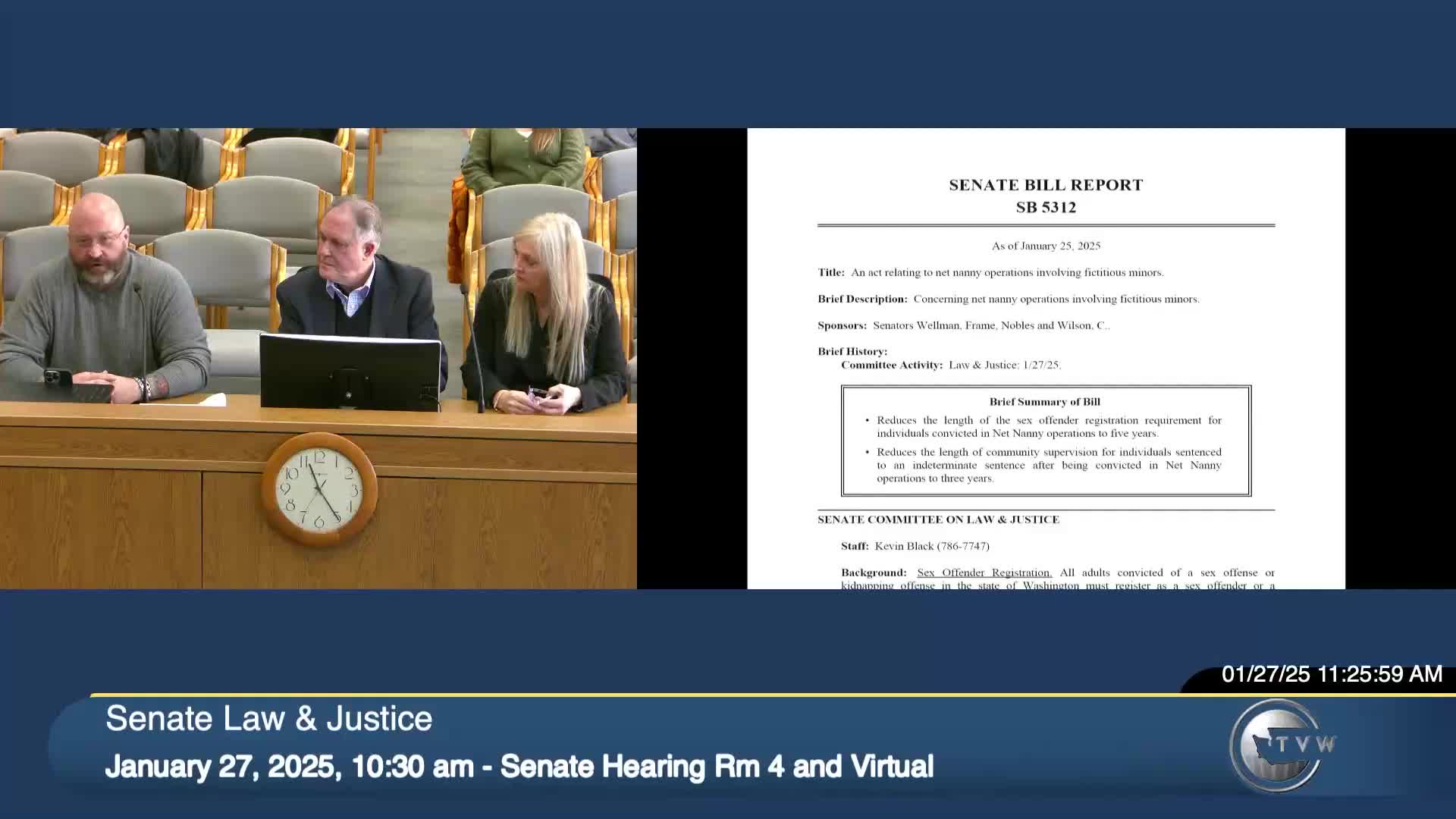
Prosecutors back bill banning child sex dolls; sentencing commission and defense groups urge lower seriousness ratings
